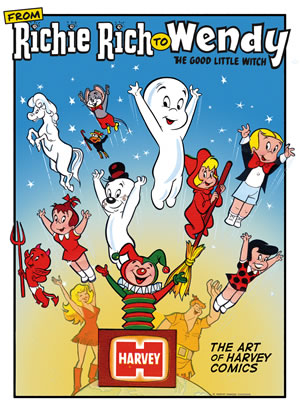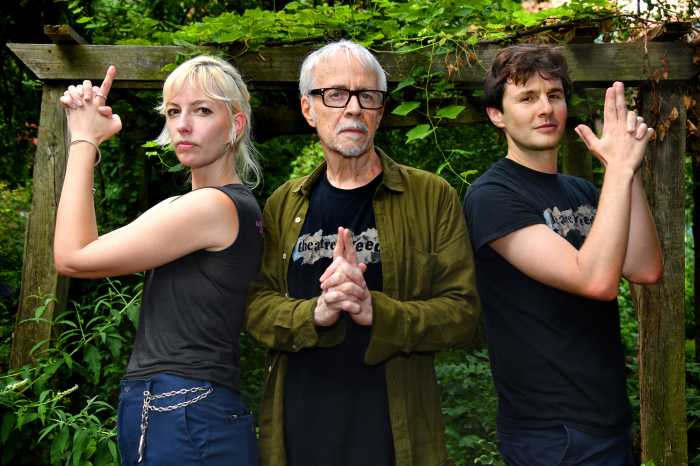By Jerry Tallmer
Alphie McCourt gives away the game right at the beginning — well, on page 20 — of his beautifully titled and, in fact, altogether quite beautiful 269-page remembrance and reverie, “A Long Stone’s Throw.”
“I was born lonesome,” he says — and there it is, in four words. It is a note he strikes again and again: “Lonely and lustful in Manhattan” (p. 34); “A talent for introspection is of little practical use and I surely have it in abundance” (p. 132); “Now, as always, perfectly introspective” (p. 166); I’ve always been a one-man band” (p. 264); and, going back to page 227, “Within the family I was not famous for being talkative,” followed by: “Once, during a game of hide and seek, by my shirt collar the brothers hung me up in a closet. I made no sound. I just waited to be found.”
That would have been back in Limerick, Ireland, and the brothers of course were Frank, Malachy and Michael McCourt, the first two of whom have written several books each, and Frank has won a Pulitzer and much else. Alphie, you may remember, was the baby in the baby carriage of “Angela’s Ashes.”
“People were at me all the time, ‘Where’s your book?’” So, at last Alphie McCourt, who in his whole life had written nothing more than one poem as a 16-year-old in one Irish newspaper, sat down and wrote a book of his own.
“For the Rashomon effect, you know. Three different stories. Three different views” — Frank’s. Malachy’s. And his own.
At first, he had written it in chronological order, starting in Limerick with Mam (their mother, Angela Sheehan) and the ever-missing Malachy Senior (“Our father who art in England”). Predominant theme: “Poverty flew in, love flew out.”
Poverty or not, “people like to read about Limerick, they can’t seem to get enough of that,” he says — but Alphie, born July 29, 1940, and named for St. Alphonsus, had had enough.
“So I started all over again — different approach, different chronology,” jumping back and forth among the decades and locales, New York, Limerick, Dublin, California, New York.
Then the problem was to get the thing printed.
“I had shown it around, was getting frustrated — couldn’t even find an agent, much less a publisher. No one was interested.
“Then Jim Salestrom — the singer and songwriter and protégé of John Denver, out in Colorado — was talking with me one day about my difficulty in finding an agent. He said: ‘Well, why don’t I come to New York and record it?’ He came to New York with this very sophisticated recording setup. We started on a Wednesday in the back of my apartment, and finished on the Saturday. Sunday we flew to Colorado, and on Monday we went to a recording studio for fine tuning, Tuesday to a production place, and by Wednesday, the day before Thanksgiving 2007, I came back to New York with the book recorded by Hatchette Audio on nine CD’s.”
He put them on a Web site, sold some, then sent around e-mails “to various people, and one of those people was Lincoln Anderson,” the associate editor of this newspaper, who had some years ago published a profile of Alphie by Elizabeth O’Brien and then a series of columns by Alphie McCourt himself.
“Lincoln mentioned the book in his Scoopy’s Notebook column and then Dermot McEvoy put it in his column in Publisher’s Weekly. A small further flurry of e-mails led to a publisher, and here we are.” (“A Long Stone’s Throw,” Sterling and Ross publishers, 269 pp., $24.95).
Alphie and I are covering this ground over coffee on what happens to be Martin Luther King, Jr., Day.
“And the book came out on November 4, Election Day. Two auspicious days,” author McCourt says.
You could hear the Irish behind it, the same way you can hear it now and again in certain lovely passages or phrases in his book, though Alphie McCourt is anything but a professional Irishman. Indeed, he prefers to avoid that subject entirely, boiling it down to: “I want to say to some of these Irish-Americans, ‘I am your ancestor, because I’m from there and you want to be from there.’ ”
But only an Irishman, I think could so felicitously phrase this, for instance, early in the book: “The Puritans fled persecution. They came, they saw, they conquered. Along the way they devised principles, very sound principles, to buttress and to justify the seeing, the sawing, and the conquering.”
He is equally wry on the subject of all the jobs he’s had since first landing in America in 1960.
“You know how all the jobs some writer has had are listed on the jacket of the book? Well, my life is like a big book jacket.”
Then he proceeds to tick off some of his employments over the years, not necessarily in chronological order:
“Working on a great glop-a-da-glop mainframe computer on Wall Street; issuing tickets for British and Irish Railways; a one-day job as bellhop in a Montreal hotel; a bank teller in Montreal; an encyclopedia salesman — for a month; working at the Army and Air Force Exchange Service on 14th Street as a buyer of luggage and musical instruments, knowing nothing about luggage and less about musical instruments; filing clerk; and, oh yes, teacher.”
All the above being mere background for the predominant portion of his working life in the world of bars and restaurants in this city and in California, as owner, co-owner, manager, bartender, waiter, maitre d’ — “and for one night a dishwasher.”
His chapters on running a since-departed restaurant called Los Panchos on Manhattan’s West 71st Street are a “Perils of Pauline” in themselves, the nightmare in the story being a 15-ton elephant of an air conditioner that never worked from Day One and just sits there, week after week, month after month, glowering.
“In the beginning,” he says of the restaurant business, “it’s easy money, or was in those days. Just cash money, like mafia money. But it’s an upside-down life” — day for night and vice versa — “a very bad life.”
Alphie enjoyed a more regular existence at his most recent job, working at the Penn South Co-op in Chelsea.
In the book he is no less wry in talking about all the girls he had trouble talking with in earlier years. The one who listened and cleared his path, a Jewish girl named Lynn Rockman, from Cedar Avenue in the Bronx, is the one he married and, 34 years later, is still married to. Their daughter, Allison, who is now 32, still lives with them on the Upper West Side.
“She’s had various learning and speech and behavior problems,” her father says, “but” — and his face lights up — “she’s a fine dancer, and knows a thousand songs.”
What’s amazing to this reader is the detail in what seems to be total recall of tiny incidents 30 and 40 and 50 and more years ago.
No, says Alphie, he did not take notes. No, he never kept a diary.
“It’s all out of memory.” (Short pause.) “Though I have to admit, it’s a little bit fanciful, here and there.”
And now that the book is written and published, Alphie, has it changed your life?
Thinks, thinks. Then: “It’s given me a greater appreciation of what my mother did for me, for all of us” [in the bitter poverty of 1940s Limerick]. “She was pressed, I think, to put us in an institution. She didn’t do that. She kept us together.”
Thinks some more. Then, with a sheepish grin: “It’s probably inconsequential, but I find there are more invitations now. That even happened when [brother Frank’s] ‘Angela’s Ashes’ came out. A lot of people want to touch the hem of the garments of fame.”
The one McCourt whom one hears little about is brother No. 3, Michael. Where and what is he these days?
“He’s a bartender in San Francisco. We all agree that Michael is the best storyteller of all of us, but he won’t write it down. He refuses. He says he’ll write his book after we’re all dead.”
Well, Alphie, it’s really been a long stone’s throw from Limerick. A long and remarkably honest stone’s throw, with so much in the book — incidents, relationships, embarrassments, crises, self-exposures, entire chapters — simply tapering off in what in art is called a dying fall.
“Somebody I used to work with said to me: ‘It’s a very brave thing that you did.’ Well, it’s not to me,” says the thrower of that stone, or the thrown stone itself, as the case may be. “It’s pretty bare-bones compared to what people spell out [in confessions, or boasts] today.
“As evidenced in the book, so much of my life was never finished. So I’m delighted as much for the fact that the book is finished as that it exists. There it was.”
And now always will be.
































